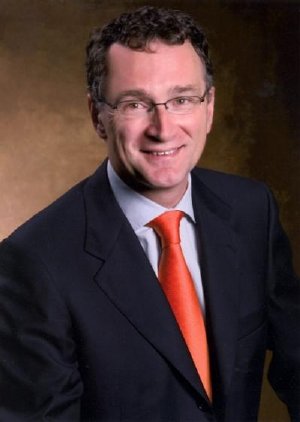Jan 7 2010
Mauro Ferrari, Ph.D., professor and chairman of the Department of Nanomedicine and Biomedical Engineering (nBME) at The University of Texas Medical School at Houston, has been elected a fellow in the American Association for the Advancement of Science (AAAS), the world's largest general scientific society and publisher of the journal Science. This prestigious honor is awarded for efforts deemed scientifically or socially distinguished.
 Mauro Ferrari, Ph.D., has been elected a fellow in the American Association for the Advancement of Science (AAAS). Credit: The University of Texas Health Science Center at Houston
Mauro Ferrari, Ph.D., has been elected a fellow in the American Association for the Advancement of Science (AAAS). Credit: The University of Texas Health Science Center at Houston
Ferrari is the only 2009 fellow from The University of Texas Health Science Center at Houston.
"This is a great honor for both Dr. Ferrari and the university," said Larry R. Kaiser, M.D., president of the UT Health Science Center at Houston. "Dr. Ferrari is known worldwide for his efforts to apply nanotechnology to the field of medicine."
Ferrari was elected as an AAAS Fellow for distinguished contributions to biomedical nano and microtechnology, especially in the fields of cancer therapeutics, diagnostics, screening and prevention, according to the AAAS.
"In high school sports, the students play and win, but it is always the school that keeps the trophy. In this case I am like the school, but I want to emphasize that this important recognition was really earned by the great students and young scientists who work in my lab and our new department," Ferrari said.
"Furthermore, this is a recognition for the mode of interdisciplinary, interinstitutional collaborations that has guided everything we do - a victory for the Alliance for NanoHealth, the leaders of the institutions that comprise it, and the vision of our elected leaders who have launched it: Texas Governor Rick Perry, United States Senator Kay Bailey Hutchison, and U.S. Congressman John Culberson. Nanomedicine is the ultimate team sport - playing together as a team, we can accomplish extraordinary objectives in health care for all," Ferrari added.
Ferrari is the first chairman of the newly-created Department of NanoMedicine and Biomedical Engineering, which gives students hands-on experience in these emerging fields of medicine.
He has been the editor-in-chief for BioMEMS and Biomedical Nanotechnology since 1997 and has published more than 160 peer-reviewed articles. He received a National Young Investigator Award of the National Science Foundation from 1993 to1998, the Wallace H. Coulter Award for Innovation and Entrepreneurship in 1999 and an Innovator Award from the U.S. Department of Defense (DoD) Breast Cancer Research Program. He was elected to the College of Fellows of the American Institute for Medical and Biological Engineering in 2008.
Ferrari has a master's degree and a doctorate in mechanical engineering from the University of California, Berkeley, and a degree in mathematics from the Universita' di Padova in Italy.
Ferrari's laboratory is currently developing a multi-stage drug delivery system to improve therapeutic efficacy; implantable drug release systems designed to provide controlled long-term release of medications; silicon nano chips for early detection and prognosis of disease; and a fracture putty using synthetic biodegradable scaffolds together with specially engineered silicon particles with nano-scale features to treat bone fractures both in civilian clinics and on the battlefield.
Ferrari is the co-founder of two nanomedicine startups. NanoMedical Systems, Inc., of Austin, Texas, is developing nano-channeled drug delivery systems and Leonardo Biosciences, Inc., of Houston is developing nano-based therapeutics. The startups licensed patents through the Office of Technology Management at the UT Health Science Center.
Ferrari serves as a professor of experimental therapeutics at The University of Texas M. D. Anderson Cancer Center, adjunct professor of bioengineering at Rice University, adjunct professor of biochemistry and molecular biology at The University of Texas Medical Branch at Galveston, adjunct professor of engineering at the University of Houston and president of the Alliance for NanoHealth, Houston.
This year, 531 AAAS members were named fellows. New fellows will be presented with an official certificate and a gold and blue (representing science and engineering, respectively) rosette pin on Feb. 20 at the AAAS Fellows Forum during the 2010 AAAS Annual Meeting in San Diego. This year's AAAS Fellows were announced in the AAAS News & Notes section of the journal Science on Dec. 18.